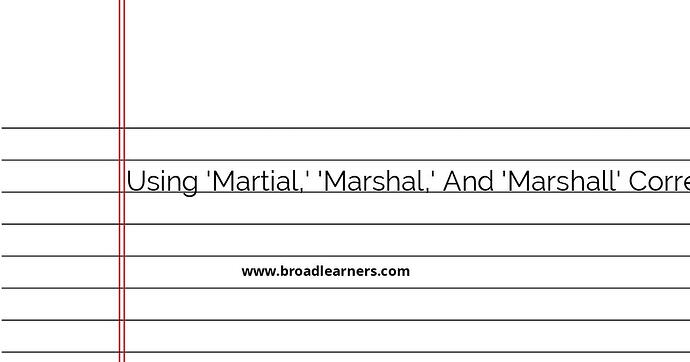Many people often confuse the words 'Martial,' 'Marshal,' and 'Marshall' due to their similar spellings and pronunciations. However, each of these words has distinct meanings and usage in the English language. Let's explore the correct usage of 'Martial,' 'Marshal,' and 'Marshall' with examples:
- Martial:
'Martial' is an adjective that relates to war, warriors, or the military. It is often used in the context of military matters or activities.
Example:
The general led the troops in a martial display of power and skill.
- Marshal:
'Marshal' can be used as a noun referring to a military officer or a law enforcement official. It can also be a verb meaning to arrange or assemble in order. Additionally, 'marshal' is commonly used in the context of organizing or coordinating resources or people.
Example:
The marshal directed the traffic to ensure a smooth flow during the event.
- Marshall:
'Marshall' is a proper noun commonly used as a surname. It is also the name of various places, organizations, or entities. When used in this context, 'Marshall' is capitalized.
Example:
John Marshall was a prominent figure in American legal history.
By understanding the distinctions between 'Martial,' 'Marshal,' and 'Marshall,' you can effectively use each word in its appropriate context and avoid confusion in your writing or speech.
Did I miss anything? Respond below
